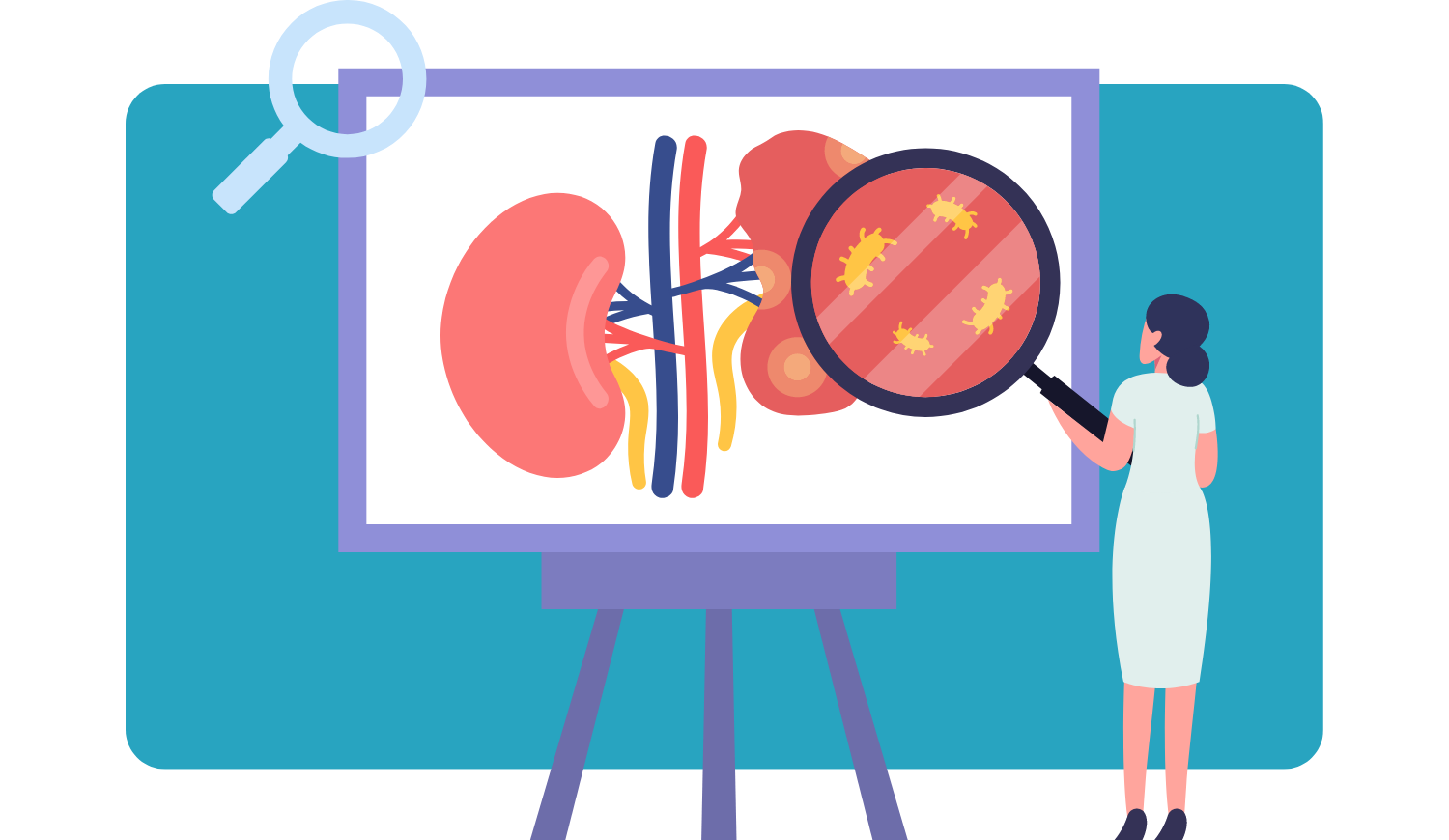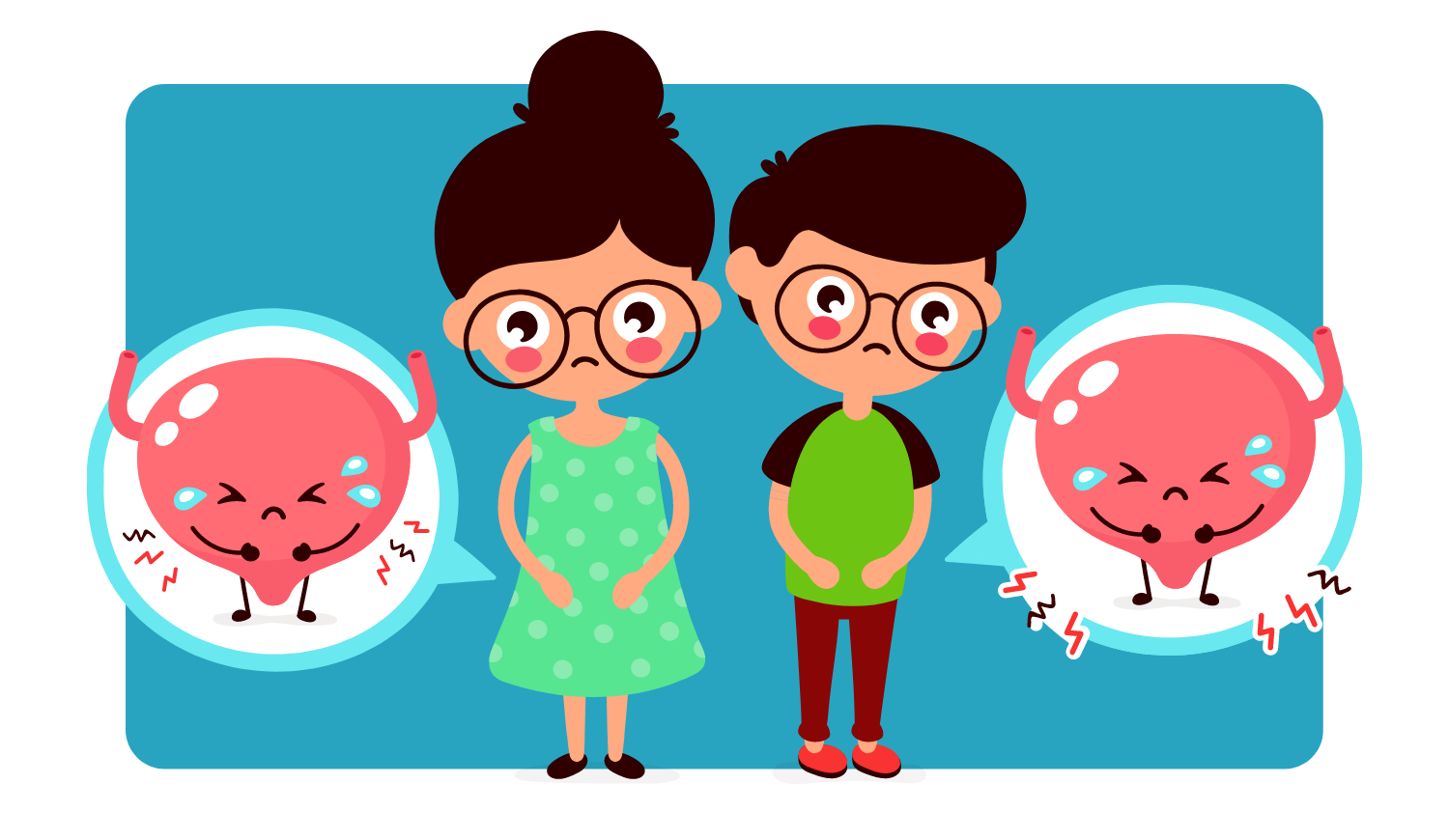Temperatures are on the rise, which means that it’s time to fill up your water jugs! Of course, maintaining adequate hydration is an instrumental part of ensuring a safe summer season. But did you know that staving off dehydration with appropriate water intake also plays a hand in fending off potential UTIs? This is deeply important to understand because, for our aging loved ones with dementia, UTIs could mean an increased risk to their overall health and behavior. So let’s learn what could happen if an older adult with dementia develops a UTI…
What Is A Urinary Tract Infection (UTI)?

Urinary tract infections, or UTIs, are exactly what their name implies: infections within the urinary tract involving the kidneys, bladder, urethra, and/or ureters. According to the Mayo Clinic, UTIs typically occur when bacteria enter the urinary tract through the urethra and begin to spread in the bladder. The urinary system is designed to keep out bacteria, but its defenses sometimes fail. When that happens, bacteria may take hold and become a full-blown infection within the urinary tract.
What Are The Odds Of Developing A UTI As We Age?
According to Gerald Oldham, MD, a geriatric medicine physician with Banner Health Center, UTIs are more common in women and can pose a severe issue for seniors with dementia. In fact, UTIs are the most common type of bacterial infection in older adults over age 65 because, as we age, our bladder and pelvic floor tend to experience weaker muscles that can cause urine retention or incontinence. In addition, Banner Health explains that whenever urine stays within the urinary tract, there’s a potential for bacteria, such as Escherichia coli, to multiply and cause an infection to spread.
Other risk factors for UTIs in older adults and seniors include a weakened immune system, the use of catheters to empty the bladder, diabetes, and kidney problems. Furthermore, older women tend to experience UTIs more often because of the female anatomy and instances of lower estrogen. Because women produce lower amounts of estrogen after menopause, there is an imbalance of good and bad bacteria in the vagina, which can lead to infection. Likewise, men may be more susceptible to developing a UTI if they have an enlarged prostate, known as benign prostate hyperplasia (BPH).

UTIs Can Be A High Risk For Seniors With Dementia
For older adults with dementia, being able to communicate some of the discomforts associated with a UTI can become its own challenge. Because of this, UTIs are often overlooked or mistreated. However, when not treated promptly, UTIs can spell out big complications leading to serious health problems, including permanent kidney damage or even sepsis. The key is knowing which symptoms to watch out for so you know when to seek medical treatment for your aging loved one. Some of the most commonly reported signs of a UTI include:

- Frequent urination
- A burning feeling when urinating
- Strong urges but only able to pass small amounts of urine
- Urine that looks cloudy
- Urine that appears red, bright pink, or cola-colored
- Strong-smelling urine
- Pelvic pain and/or back pain
Another important symptom to look out for — one of which is often mistaken for something else – is a sudden development of confusion or delirium in a person with dementia. According to the Alzheimer’s Society, there are different types of delirium, and symptoms may include agitation or restlessness, increased difficulty concentrating, hallucinations or delusions, or becoming unusually sleepy or withdrawn. The Alzheimer’s Society also notes that symptoms of delirium vary in severity over the course of the day.
Since dementia impacts the way a person is able to think or communicate, some of these behavioral changes might not appear to need immediate medical attention. However, suppose you or another care partner notice a sudden change in your loved one’s mental state. In that case, it might be beneficial to seek a doctor’s evaluation to rule out the possibility of a UTI and quickly start a round of helpful antibiotics as needed.
Flush Out The Risks Of UTIs With Plenty Of Water!
If you are a care partner looking to lower the risks of developing a UTI for your loved one with dementia (or maybe even yourself!), then the first step is to always make sure they are properly hydrated. Drinking plenty of water throughout the day will surely give the urge to “go,” but doing so helps keep everything adequately flushed out, lessening the chances of bacteria taking hold within the urinary tract system.

The Alzheimer’s Society suggests that adults should drink between six and eight glasses of fluid a day and drink alcohol only in moderation. You can help encourage someone with dementia to stay hydrated by making drinks readily available and visible, such as using a brightly colored glass or cup. It is also necessary to monitor fluid intake for seniors who are maybe less mobile and at risk of dehydration.
Did You Know?
Oakwood Creative Care is bringing back the JOY in aging! We believe a diagnosis should not have to define your life. Instead, we have devoted our mission to reigniting hope for caregivers and older adults with Alzheimer’s, dementia, and other age-related challenges. Click the button below to learn more about how we do this through our research-based, cutting-edge, creative care model found at each of our Day Clubs.




